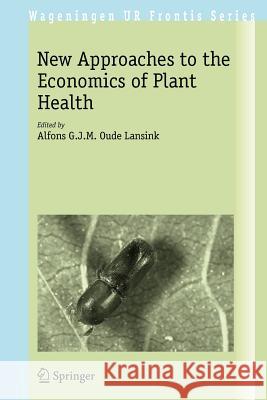New Approaches to the Economics of Plant Health » książka
New Approaches to the Economics of Plant Health
ISBN-13: 9781402058257 / Angielski / Twarda / 2007 / 204 str.
New Approaches to the Economics of Plant Health
ISBN-13: 9781402058257 / Angielski / Twarda / 2007 / 204 str.
(netto: 732,66 VAT: 5%)
Najniższa cena z 30 dni: 765,72 zł
ok. 20 dni roboczych.
Darmowa dostawa!
This book presents the outcomes of a workshop around the emerging area of the economics of plant health. The workshop was organized in Wageningen in July 2005 under the auspices of Frontis - Wageningen International Nucleus for Strategic Expertise. Plant health nowadays plays an increasing role in national and international policy making. This explains the interest of the Netherlands Ministry of Agriculture, Nature and Food Quality in this workshop. The increasing importance of plant health in international policy making also follows from the recent establishment of a scientific panel on plant health by the European Food Safety Authority. This panel has to advise the EU on policy issues in the area of plant health. Plant health issues have numerous economic dimensions. Measures to control quarantine diseases and invasive species are usually costly, whereas the potential benefits, e. g., avoided losses, are often difficult to quantify. Quantifying the costs and benefits requires close collaboration between economists and epidemiologists. New GIS tools can play an important role in visualizing and modelling the combined economic and epidemiological consequences of control measures. Quarantine organisms and invasive species also frequently have impacts that go beyond agriculture. Impacts on landscapes and the environment call for the application of new approaches to measuring the economic impacts on society. This book presents a number of new approaches to economic modelling of plant health; it is primarily intended for policy makers and scientists working in the area of plant health.











